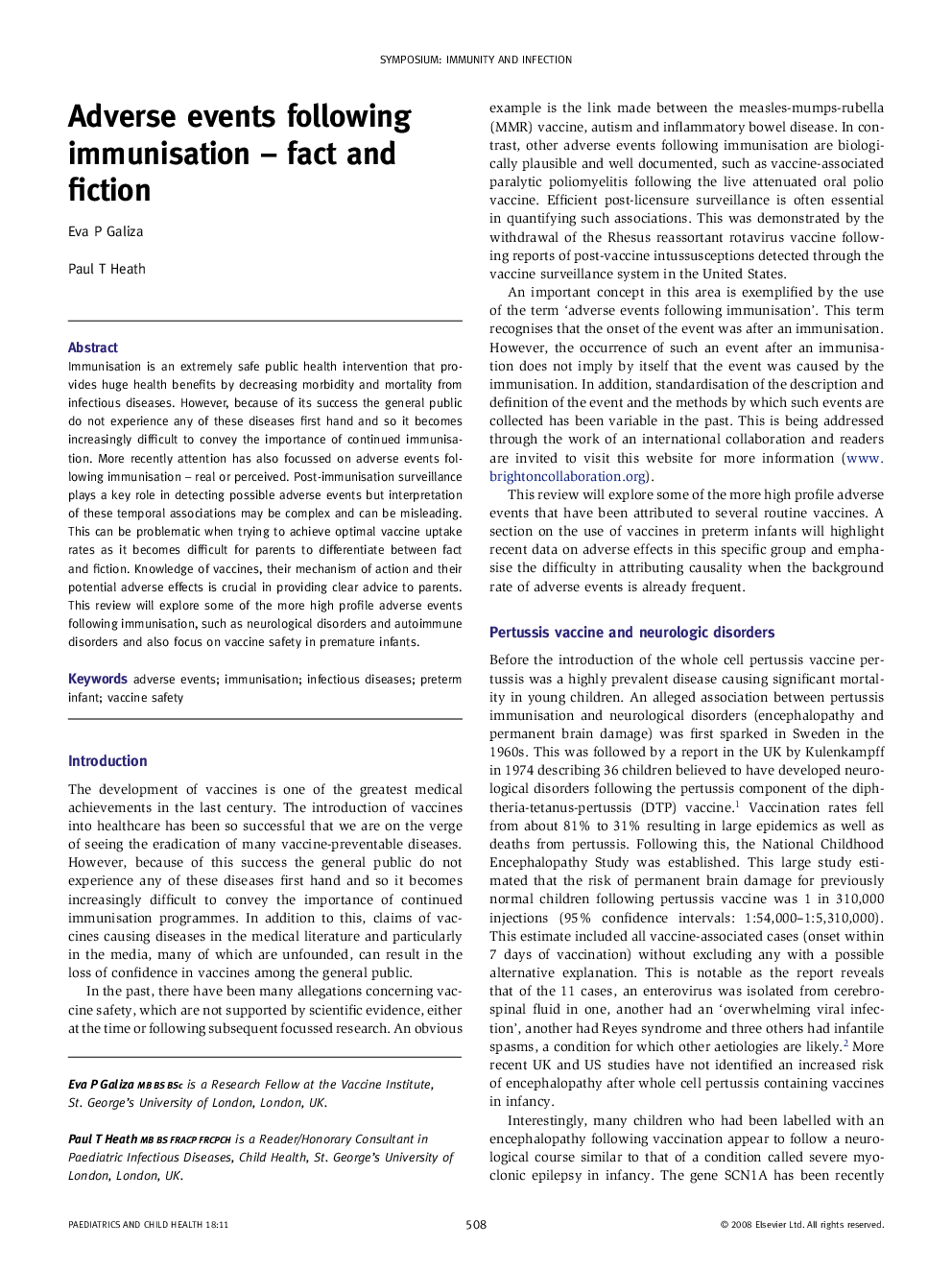| Article ID | Journal | Published Year | Pages | File Type |
|---|---|---|---|---|
| 4172752 | Paediatrics and Child Health | 2008 | 5 Pages |
Immunisation is an extremely safe public health intervention that provides huge health benefits by decreasing morbidity and mortality from infectious diseases. However, because of its success the general public do not experience any of these diseases first hand and so it becomes increasingly difficult to convey the importance of continued immunisation. More recently attention has also focussed on adverse events following immunisation – real or perceived. Post-immunisation surveillance plays a key role in detecting possible adverse events but interpretation of these temporal associations may be complex and can be misleading. This can be problematic when trying to achieve optimal vaccine uptake rates as it becomes difficult for parents to differentiate between fact and fiction. Knowledge of vaccines, their mechanism of action and their potential adverse effects is crucial in providing clear advice to parents. This review will explore some of the more high profile adverse events following immunisation, such as neurological disorders and autoimmune disorders and also focus on vaccine safety in premature infants.
